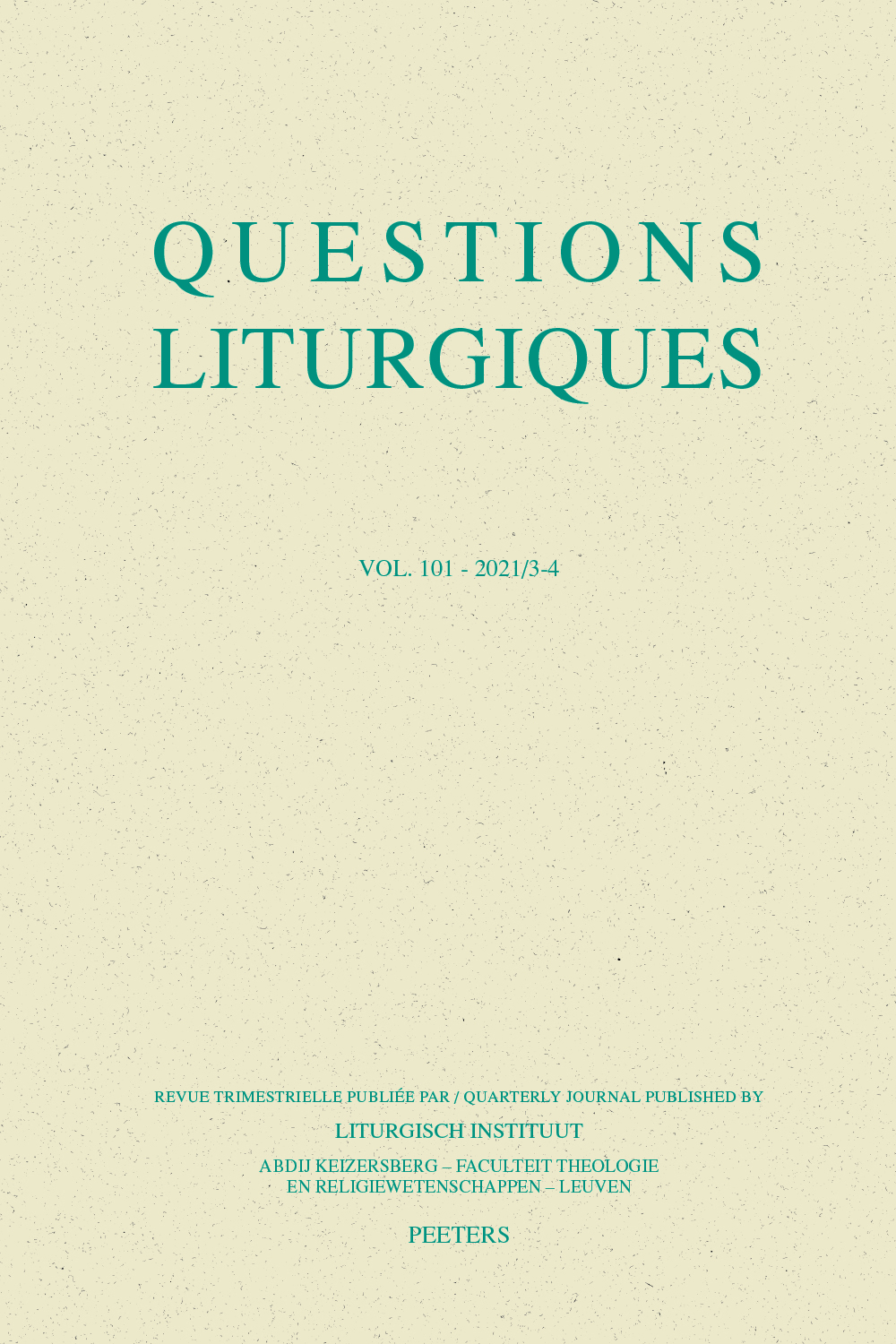 previous article in this issue previous article in this issue | next article in this issue  |

Preview first page |
Document Details : Title: L'identité narrative de Dieu Subtitle: Temps des hommes et récit de Dieu Author(s): CLAUTEAUX, Elbatrina Journal: Questions Liturgiques/Studies in Liturgy Volume: 92 Issue: 2 Date: 2011 Pages: 130-160 DOI: 10.2143/QL.92.2.2134013 Abstract : Qui est Dieu pour nous chrétiens? Qui est le Dieu de notre foi qui nous parle et qui agit dans l’histoire selon le récit biblique? Dans le champ de la philosophie contemporaine, Paul Ricoeur à la suite de Hannah Arendt a montré que la réponse à la question «qui?» se trouve dans l’acte de raconter. Dans cette perspective, c’est donc la narration qui nous révèle l’identité de Dieu sans pour autant l’épuiser. Dans le récit de Dieu, la fonction ontophanique du langage, son pouvoir de manifester l’être, dit l’être divin même, sans pour autant l’arraisonner puisque le récit voile le mystère de l’identité personnelle de Dieu tout en le racontant. Ainsi la notion d’«identité narrative» appliquée au récit de Dieu est théophanique et constitue un enjeu théologique de la philosophie de Ricoeur. L’«identité narrative» de Dieu raconte les rencontres entre Dieu et l’homme en demande de récit, montre Dieu parlant «homme» pour se raconter et l’homme racontant Dieu pour recevoir cette identité divine. La liturgie, dans une circularité vivante, joue en boucle ces trois figurations du récit de Dieu afin de configurer l’identité chrétienne issue du rapport symbolique entre Écriture-Liturgie-Vie. Ainsi l’identité narrative de Dieu, manifestation du mystère de Dieu comme débordement amoureux qui nous engendre sans cesse, institue l’identité de l’homme. Who is God for us Christians? Who is the God of our faith, who talks to us and who, according to the biblical story, acts in history? In the area of contemporary philosophy Paul Ricoeur has shown that the answer to the question 'who' must be situated in the act of narrating, thereby following Hannah Arendt’s intuitions. According to this perspective, it is above all narration which reveals to us God’s identity, without however exhausting it. The ontophanic function of language, i.e. its capacity to manifest being, expresses God’s own being through his story, without however controlling it, because the story veils the mystery of God’s personal identity while at the same time telling it. Hence, the notion of 'narrative identity' applied to God’s story is theophanic and implies a theological challenge of Ricoeur’s philosophy. God’s 'narrative identity' tells about the encounters between God and humanity which ask to be told; it shows God talking to humanity to tell (about) himself and humanity telling about God to receive this divine identity. Throughout a living circularity the liturgy permanently displays these three figurations of God’s story with a view to configuring the Christian identity which emerged from the symbolic interconnection between Scripture, Liturgy, and Life. As a consequence, it is God’s narrative identity, understood as the manifestation of God’s mystery and as an outburst of love which continuously nourishes us, which institutes humanity’s identity. |
|


